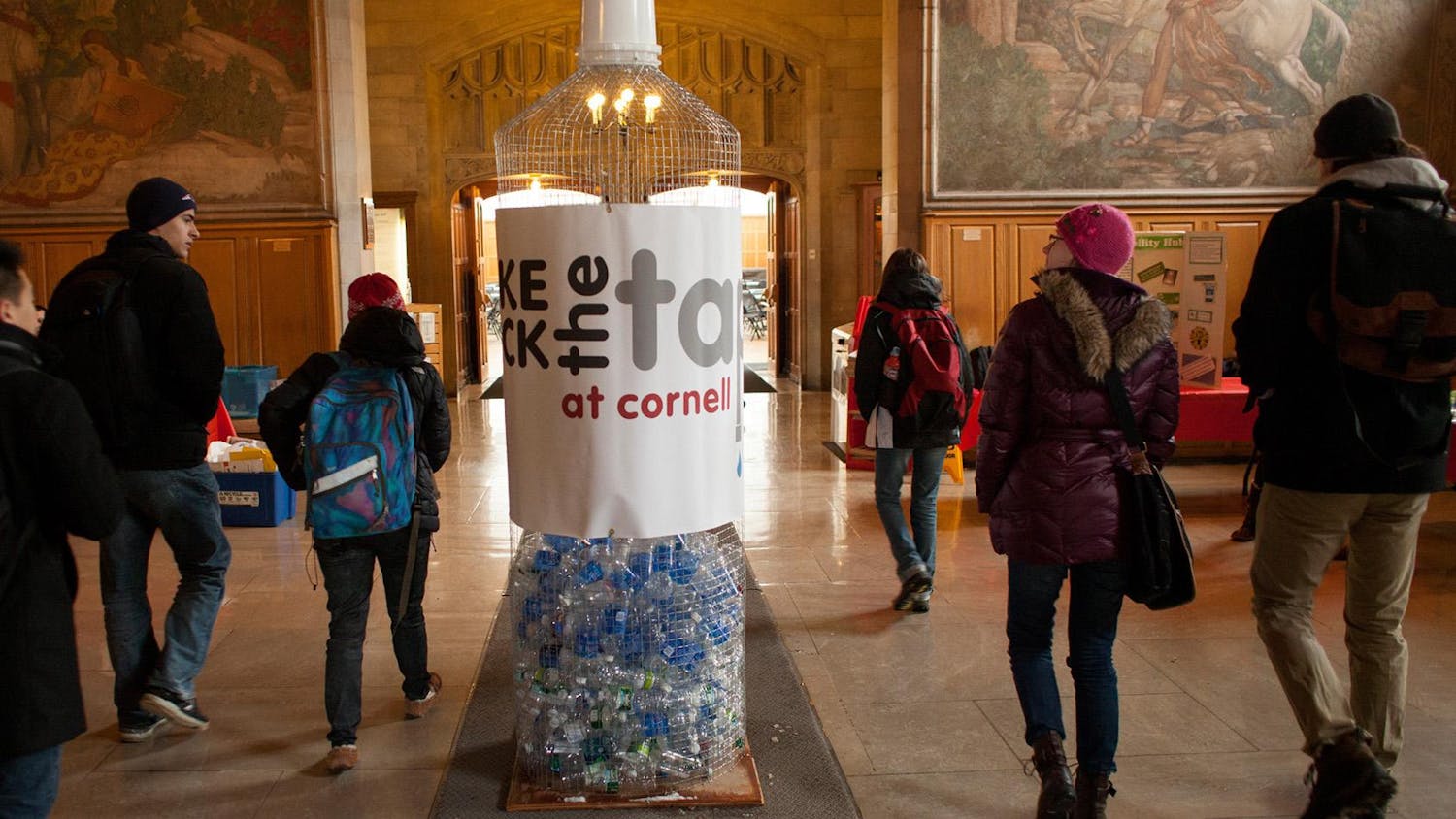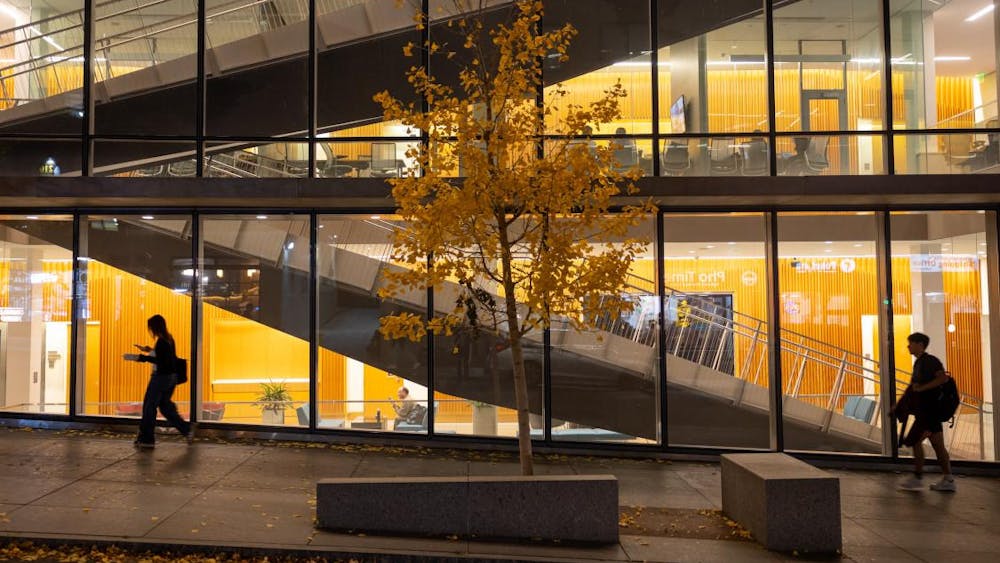The Common Good coalition held its second meeting on Friday to discuss its demands for the University as Cornell prepares to construct an office building on the Ithaca Commons. The Common Good seeks to influence the University while it chooses a developer for the project so that the building will be constructed using union labor.
Formed earlier this month, the coalition is made up of Ithaca labor unions, the Cornell Democrats and the Cornell Organization for Labor Action (COLA).
Joint Project
The plans for the new building, a joint project between the University and the City of Ithaca, were announced by Cornell President Hunter R. Rawlings III and Ithaca Mayor Alan Cohen '81 last September. The University will select a developer to fund and manage the project. Once complete, 70 percent of the office will house Cornell offices in the downtown section known as Bank Alley on the Ithaca Commons.
Labor lawyer Richard Furlong, hired by the Building Trades' Council to lead the coalition, organized a meeting to discuss the issue in Albany last Tuesday. Ronald Seeber, associate dean of the School of Industrial and Labor Relations, and several other University representatives attended the conference. State Assembly Rep. Marty Luster (D-125) was also present.
'Waste of Time'
"We stated our position on Cornell's need to pick a developer that's a friend to the community," Furlong said. "The people [from Cornell] sent pled ignorance on a lot of these issues. It was a waste of time."
Following the meeting, Seeber and Luster were unavailable for comment.
More recently, the coalition held a second Ithaca meeting attended by Cohen and John Majeroni, the University's director of real estate.
Cornell's position, according to Majeroni, is that the developer will be responsible for deciding whether to employ union workers and how many workers in the project will be union or non-union. Thus, Cornell will be absolved from having to decide the matter itself.
"We explained our position again," Majeroni said of the last local meeting. "Nothing new really happened."
The University has narrowed the field of developers competing for the project to three final candidates, Majeroni said, and one company will be chosen by the end of March.
Of note, he added that all of the candidates have used union labor on previous projects.
"One of things we'll be considering [in the decision] is labor issues," Majeroni said.
However, Majeroni conceded that he didn't believe any developer would use all union labor.
"No one will build this building in Ithaca, N.Y. under those conditions," Majeroni said. "It stops being competitive when it has to be union ... unless the University subsidizes it."
When approached by Furlong about the coalition, the students who joined the effort stated their belief that Cornell could ensure that union labor, one way or another, is employed for the construction project.
"I don't believe that Cornell doesn't have the money to fund this project using union labor," said Michael Bronstein '02, a member of the Cornell Democrats. "[I think] that's an excuse for Cornell to be able to get away with the bad labor practices it already has on campus."
"The administration doesn't really think students really care about this," said David Unger '02, member of COLA.
COLA and the Cornell Democrats are now planning how they will help publicize the campaign if the coalition is not satisfied with the developer that the University selects. The organizations have discussed petitions, distributing quarter-cards, and other ways of informing the Cornell community about the issue.
COLA has arranged a meeting with Majeroni to be held next Tuesday at 6 p.m. in Anabel Taylor Hall. The meeting will be a forum in which students can ask questions and voice their concerns about the project.
Unger and Joe McNearney '02, COLA treasurer expressed hope for a meeting between the Common Good coalition and members of the University administration, including Rawlings and Provost Carolyn A. (Biddy) Martin.
"Hopefully, it will be before ... Cornell chooses the developer," McNearney said.
"It will be probably a couple of months before a firm contract is in place," Majeroni said. "It'll get massaged. It's not going to be like on March 1, there's going to be a contract signed ... and then it's over. This will go on way past March."
Archived article by Maggie Frank










